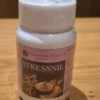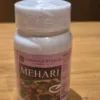Jatamansi
|
Botanical Name |
Nordostachys Jatamansi |
|
Family |
Valerianaceae |
|
Sanskrit |
Jatamansi, Bhuutjata, Tapasvani |
|
English |
Spikenard |
|
Hindi |
Jatamansi, Bal Chad |
|
Kannada |
Jatamansi |
|
Malayalam |
Jatamansi |
|
Telugu |
Jatamansi |
|
Tamil |
Jatamansi |
|
Marathi |
Jatamansi |
Distribution
Few parts of india, like bhutan, sikkim, punjab, himalayas.
|
Parts Used |
Root |
|
Dose |
2 To 4 Grams |
Chemical Constituents
Actinidine, carotene, eudesmol, jatamansic acid, jutamansone, nardol, nardostachanol, nardostachone, patchouli alcohol, isovaleric acid, virolin, angelicin, elemol, angelicin, seychalane.
Ayurvedic Properties
|
Quality (Guna) |
Laghu, Snigdha |
|
Taste (Rasa) |
Tikta, Kashaya, Madhura |
|
Metabolism (Vipaka) |
Katu |
|
Potency (Virya) |
Sheeta |
|
Impact (Prabhava) |
Sangyasthapana |
Pharmacological Action
- Antiepileptic property of jatamansi is helpful in treating epilepsy or apasmara.
- Hypotensive activity helps in controlling high blood pressure.
- Analgesic of jatamansi extracts are helpful to prevent painful conditions or post trauma.
- Hypothermic effects helps in giving cooling effect of the body.
- Antiemetic.
- Antiarrhythmic helps in managing cardiac complaints.
- Antispasmodic of jatamansi helps in treating muscular spasms.
- Antibacterial, antifungal, anthelmintic various infections.
- Diuretic property of jatamansi is helpful in preventing edema.
- Antianxiety properties are helpful in preventing anxiety.
- Bronchodilatory effect of jatamansi is helpful in treating swasa or bronchial asthma.
Therapeutic Uses
- High blood pressure.
- Head Ache.
- Coolant.
- Analgesic.
- Epilepsy.
- Unmada or screzoprenia
Some of the common formulations
- Ashmarihar kashay churna
- Boladi vati
- Himsagar taila
- Jatamamsyarka




